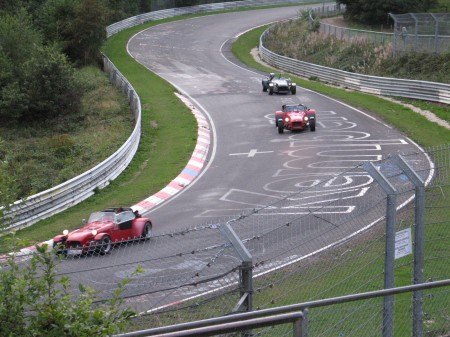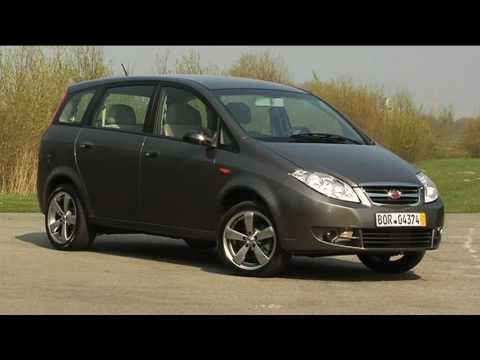#ADAC
Fast Is Past: German Auto Club No Longer Opposes Speed-limited Autobahn
The German equivalent of AAA, Allgemeiner Deutscher Automobil-Club (ADAC), has long been a proponent of a limitless Autobahn. However, the group recently walked back its zeal for the cause amid demands from environmental groups to enact speed limits in a bid to curb emissions.
While most of the Autobahn has the same posted limits you’d find on most North American highways, there are plenty of sections where people can drop the hammer and go as fast as conditions permit. Safety advocates have often raised an eyebrow, encouraging regulators to limit additional sections of the roadway, but universal limits have always been a bridge too far. Now that environmental groups have joined the fray, the issue has garnered a lot more attention.
This Group Defeated Keyless Entry Cars With Simple Homemade Devices
German automobile club ADAC has released a report showing they were able to easily break into cars from 19 different manufacturers using a set of devices they built for a few hundred dollars.
The devices allowed the ADAC technicians to perform a relay attack on proximity key enabled vehicles by repeating the signal from the key fob.
This type of attack was previously described by researcher Boris Danev and his colleagues but was done in a lab environment with devices costing thousands of dollars. The ADAC test should serve as a significant warning to manufacturers, since it was completed using re-purposed consumer electronics that are inexpensive and portable.
Rigged Voting May Lead ADAC To Scrap Annual Award
German auto club Allgemeiner Deutscher Automobil-Club e.V., or ADAC, may no longer bestow their annual Yellow Angel Award after the club admitted to vote rigging.
One German Automaker to Become Lord of the 'Ring, But Who?
Nissan. Cadillac. Chevrolet. All brag about being the Lord of the ‘Ring, upsetting the German automakers to no end. Yet, one of them may still have the last laugh through the act of saving the Nürburgring from certain doom.
Germany's ADAC Tests Crash Test. Crash Test Fails
Since Sunday, a story made the news in Germany that a Ford Fiesta and a Peugeot 308 had been crashed by Germany’s auto club ADAC, with horrific results. Both cars come with a five star Euro NCAP rating. Hence, everybody wanted to know which of the cars failed badly. Now the auto club says: It’s not the cars that are bad. It’s the crash standards.
China's Landwind Back In Europe
5 years ago, disturbing news reached Germany. A Chinese company called Jiangling had the nerve to disturb the peace of the Frankfurt Motor Show IAA by displaying a Chinese SUV, with the intent to sell the vehicle. With dispatch, a crash test was arranged by the ADAC, the German equivalent of the AAA. The car failed miserably, the video became a hit on Youtube, and turned into an example for all that’s wrong with Chinese cars. Landwind was done. Never mind that rumors wouldn’t die that ADAC’s Landwind test had used, shall we say, “enhanced techniques.” Never mind that Germany’s TÜV, the company that officially tests cars for the German government, tested the car later and certified that it met all mandatory safety criteria. Never mind that the ADAC has a sometimes incestuous relationship with German auto makers. Landwind was destroyed, the first attempt to invest European soil with Chinese cars was repulsed. Later, ADAC did the same to Brilliance, again under questionable circumstances, again with the predictable results: Brilliance was dead, had to leave Europe. Well, Brilliance is coming back. And so does Landwind.
The ADAC Strikes Again!
Having run Brilliance out of Europe, the ADAC had to look elsewhere for this latest bit of YouTube entertainment. And how did they find their shocking footage du jour? By running an ESP-less French compact “tallboy” wagon (specifically, the Citroen Nemo) through its infamous “Moose Test.” But don’t worry too much Citroen: past Moose Test failures include the Mercedes A Class, the Renault Kangoo, and Toyota HiLux.
Volvo: The Safe Choice, Again?
Ask a non gearhead on the street (or pub, restaurant, clubs, etc) “who builds the most reliable cars?” and names like “Toyota”, “Hyundai”, “Ford” and “Honda” will crop up. Ask who builds the safest cars on the road and almost certainly, the name “Volvo” will be said.
The thing is Volvo lost their safety crown a long time ago to those 35 hour a week working, industrial action initiating, part government owned Frenchies. Renault. Renault consistently set new standards in safety and crash tests, lapping up praise from Euro NCAP. Some of this technical know-how has even trickled into Renault’s partner, Nissan. The Nissan Qashqai (thankfully renamed Rogue in the U.S., although it wasn’t a big improvement) achieved the highest ever Euro NCAP score. But now, it seems, Volvo is fighting back to regain the coveted safety title.
Reliability Statistics Bonanza: Thirty Years Of Pannenstatistik
ADAC is who responds to essentially every automotive Panne (breakdown) in Germany. And with the Germanic proclivity for thorough record keeping, they have kept them all, and analyzed them more thoroughly than any of Freud’s patients ever were. Did your mother have a flat in 1983? ADAC knows. And they’ve been using it to publish annual best and worst reliability rankings since 1978. If you caught the Toyota Starlet CC, you’ll know that it was the queen of the ADAC numbers, and the bane of Mercedes and the other (once) proud builders of the world’s most presumably durable iron. Since ADAC doesn’t have an easy way to see all thirty year’s worth of the good and naughty, my Germanic side kicked in and I spent a chunk of last night transcribing them unto a spreadsheet, because…well, that’s just how Germanic I am.























Recent Comments